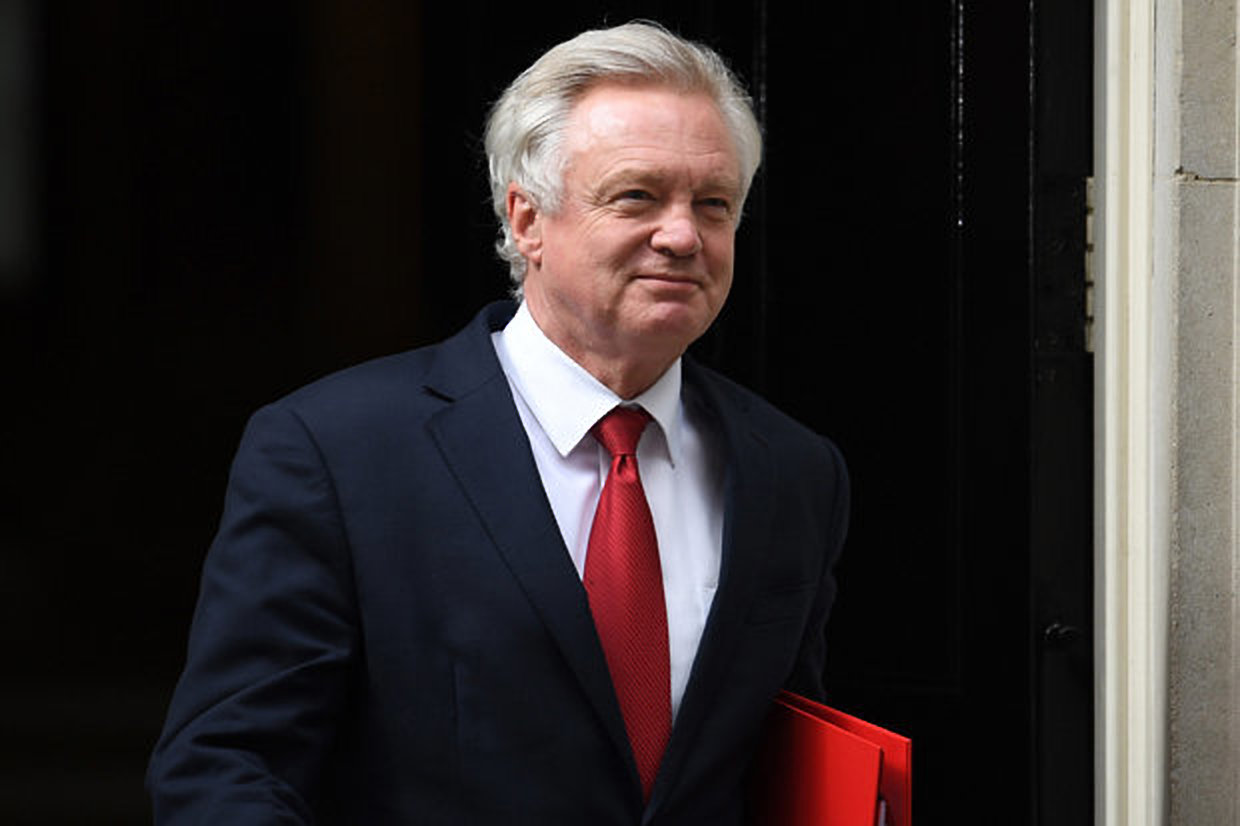
LONDON – Brexit Secretary David Davis, who has been leading negotiations for the UK to leave the EU, has resigned from the UK government.
In his resignation letter, Mr Davis criticised the Prime Minister Theresa May’s Brexit plan – agreed by the cabinet on Friday – saying it would leave Parliament with “at best a weak negotiating position”.
The UK cabinet Friday reached a “collective” agreement on UK’s future relationship with European Union subsequent to the Brexit.
UK Ministers signed a plan to create a free trade area for industrial and agricultural goods with the bloc, based on a “common rule book”. The agreement was described to amount to “combined customs territory”.
Our political editor at BBC alleged that the prime minister had “picked a side” by opting for a closer relationship with the EU than many colleagues desired; a highlight that seemingly triggered Brexit Secretary David Davis to resign.
In her reply, Mrs May said she did not agree but thanked him for his work.
Junior minister Steve Baker quit shortly after Mr Davis – as Mrs May prepares to face MPs and peers later.
In his letter, Mr Davis told Mrs May that “the current trend of policy and tactics” was making it “look less and less likely” that the UK would leave the customs union and single market.
He said he was “unpersuaded” that the government’s negotiating approach “will not just lead to further demands for concessions” from Brussels.
Mr Davis, who was appointed Brexit Secretary in 2016, said: “The general direction of policy will leave us in at best a weak negotiating position, and possibly an inescapable one.”
In her reply, Mrs May said: “I do not agree with your characterisation of the policy we agreed at cabinet on Friday.”
She said she was “sorry” he was leaving but would “like to thank you warmly for everything you have done… to shape our departure from the EU”.
‘Absolute chaos’
Conservative MP Peter Bone hailed the resignation as a “principled and brave decision”, adding: “The PM’s proposals for a Brexit in name only are not acceptable.”
UK Labour Party chairman Ian Lavery said: “This is absolute chaos and Theresa May has no authority left.”
Labour leader Jeremy Corbyn said Mrs May was “incapable of delivering Brexit”.
About the Brexit
In a controversial vote to have Britain to leave or remain in the European Union saw England vote for Brexit, by 53.4% to 46.6%. Wales also voted for Brexit, with Leave getting 52.5% of the vote and Remain 47.5%. Scotland and Northern Ireland both backed staying in the EU. Scotland backed Remain by 62% to 38%, while 55.8% in Northern Ireland voted Remain and 44.2% Leave
Notwithstanding Prime Minister Theresa May’s stand against Brexit, the referendum result was in favour; a reflection of the say of the people in Britain. Her key message has been that “Brexit means Brexit” and she triggered the two year process of leaving the EU on 29 March, 2017.





